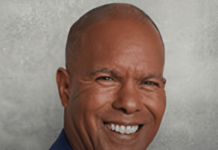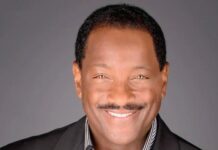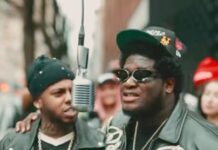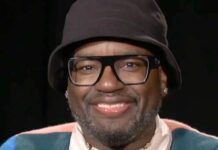*The epilogue to Ava DuVernay’s stirring, Academy Award-nominated movie Selma reminds us of what became of the heroes and villains of the wrenching 1965 voting rights struggle. Andrew Young, one of Dr. King’s leading lieutenants, became US ambassador to the United Nations and two-term mayor of Atlanta. John Lewis embarked upon his longrunning service in the US House of Representatives. And Sheriff Jim Clark, whose brutal bigotry set the blueprint for the vicious response of Alabama’s white racists, Sheriff Clark was voted out of office due to the huge turnout of black voters!
This footnote about Sheriff Clark’s fate bookends a monologue near the beginning of film in which Martin Luther King – played masterfully by David Oyelowo — tells President Johnson that black Southerners must have the vote to secure justice from an oppressive criminal justice system that was dedicated to white supremacy. Sheriff Jim Clark getting the boot was early proof of what the Civil Rights soldiers knew – that the vote was power!
Eight years before the Selma campaign, in 1957, Dr. King spoke at the Prayer Pilgrimage for Freedom in Washington, DC and told our nation’s leaders: “Give us the ballot and we will fill our legislative halls with men of good will… Give us the ballot and we will no longer have to worry the federal government about our basic rights.”
The film Selma reminds us not only of the bitter sacrifices that were made to secure our voting rights – but also of the necessity for us to exercise those voting rights to pursue, maintain and reinforce fragile justice, fairness and opportunity. It’s a message that some of us on the left need to reconnect with. In recent years, some liberals and progressives have done a better job of organizing protest marches than organizing voter turnout. Marching continues to be an important method of expressing our grievances, but far too often we’ve hit the pavement without substantive objectives.
Protestors at the World Trade Organization meetings in Seattle clashed with police, but failed to mobilize supporters around a set of actions that could influence policy. The Occupy movement started as an inspiring grassroots response to corporate practices that solidify income inequality. But without a clear and unifying agenda, set of demands or any strategy for action beyond urban camp-ins, Occupy withered to insignificance.
Recent demonstrations against police violence in the wake of the Michael Brown and Eric Garner killings have united Americans across racial, ethnic and socio-economic lines in bold and beautiful statements against biased law enforcement and in declaration of the value of black men’s lives. However, some of the demonstrations have perplexed me. It’s difficult for me to see the benefit of walking out onto a freeway in Los Angeles or Berkeley, California or interrupting people at brunch in New York City. Such actions do not engage power brokers in talks to bring about change.
Now on the other side of the political spectrum, conservatives don’t march very often. They promote their ideology through the media – especially talk radio and Fox News – and they organize and motivate their base to participate in elections.
Voting is still one of the most potent forms of power in our democracy. Conservatives know this, and I believe that’s why they’ve been working overtime to undercut that power in recent years. The election of President Obama in 2008 frightened the right wing because it represented a massive coming together, a uniting of Americans of all stripes around a bold, populist agenda focused on change. Since then, Republican state legislators and governors have enacted overly-strict voter identification laws which have the effect of suppressing election day participation among groups that traditionally support Democrats – young people, the poor, low income elderly and Latino and black folks. It was in the midst of this unabashed voter suppression, that the conservative majority on the Supreme Court extracted the teeth from the 1965 Voting Rights Act on the false grounds that it is no longer needed.
And yet, while the forces of regression are burning the midnight oil implementing schemes to disempower us at the polls, many of us have simply given away our power by not going to the polls. Republicans swept the November 2014 midterm elections in large part because two-thirds of the electorate – including many left-leaning voters — stayed at home. That cleared the field for GOP candidates to sprint across the electoral goal line seizing control of the Senate, expanding their majority in the House, and taking several governors’ mansions.
Marching can be a good thing. But if we, as liberals, are going to advance our agenda and bring about real change then marching cannot be a primary course of action. We must develop more effective means to influence the hearts and minds of the general public as well as our elected officials. And, most important of all, we must vote consistently in large numbers in every election – not just in Presidential elections. So, when we march, we must do so not only in the streets but we must heed Martin Luther King’s admonition to “march on ballot boxes!” That’s what the Selma campaign was all about. And that is how we will impact the direction of our nation.
Thanks for listening. I’m Cameron Turner and that’s my two cents.
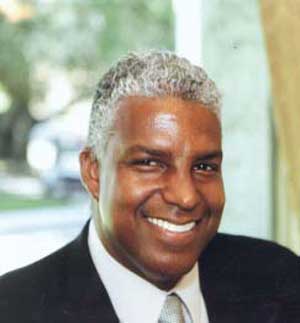
We Publish News 24/7. Don’t Miss A Story. Click HERE to SUBSCRIBE to Our Newsletter Now!
